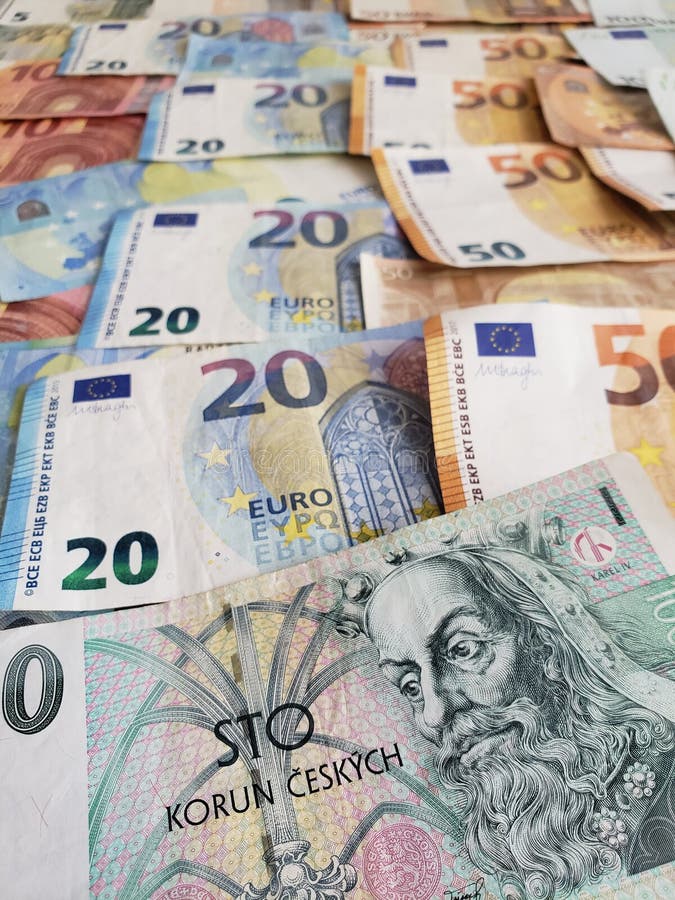
In April 2013, the Czech Ministry of Finance stated in its Convergence Programme delivered to the European Commission that the country had not yet set a target date for euro adoption and would not apply for ERM II membership in 2013.

One of the government's junior coalition parties, TOP09, was opposed to a euro referendum. Nečas said that since the conditions governing the eurozone had significantly changed since their accession treaty was ratified, he believed that Czechs should be able to decide by a referendum whether to join the eurozone under the new terms. The European debt crisis further decreased the Czech Republic's interest in joining the eurozone. Nečas also stated that his cabinet would not decide upon joining the euro during its term. Czech Prime Minister Petr Nečas later stated that no opt-out was required because the Czech Republic could not be forced to join the ERM II and thus could decide if or when to fulfil one of the necessary criteria to join the eurozone, an approach similar to the one taken by Sweden. In late 2010 a discussion arose within the Czech government, partially initiated by then President Václav Klaus, a well known eurosceptic, over negotiating an opt-out from joining the eurozone. In June 2008, the Central bank governor Zdeněk Tůma speculated about 2019. However, in October 2009, the then Finance Minister, Eduard Janota, stated that 2015 was no longer realistic.

In August 2008, an assessment said that adoption was not expected before 2015 due to political reluctance on the subject. In February 2007, the Finance Minister said 2012 was a "realistic" date, but by November 2007 this was said to be too soon. Initially, the Czech Republic planned to adopt the euro as its official currency in 2010, however evaluations in 2006 found this date to be unlikely and the target date was postponed indefinitely. Since joining the EU in May 2004, the Czech Republic has adopted fiscal and monetary policies that aim to align its macroeconomic conditions with the rest of the European Union. The European Union membership referendum in 2003 approved the country's accession with 77.3% in favour, and in 2004 the Czech Republic joined the EU. See also: 2004 enlargement of the European Union History European Union accession and 2000s The cabinet that was formed following the 2017 legislative election did not plan to proceed with euro adoption within its term, and this policy was continued by the succeeding cabinet formed after the 2021 election. As of 2017, there is no target date by the government for joining the ERM II or adopting the euro. The Czech Republic is therefore a candidate for the enlargement of the eurozone and it uses the Czech koruna as its currency, regulated by the Czech National Bank, a member of the European System of Central Banks, and does not participate in European Exchange Rate Mechanism II (ERM II).Īlthough the Czech Republic is economically well positioned to adopt the euro, following the European debt crisis there has been considerable opposition among the public to the adoption of the euro currency. Czech koruna (CZK) to U.S.The Czech Republic is bound to adopt the euro in the future and to join the eurozone once it has satisfied the euro convergence criteria by the Treaty of Accession since it joined the European Union (EU) in 2004.Last updated: Jat 12:05 AM CET Most popular currency exchange rate conversion pairs Top currency exchange rates at Convertworld General information about CZK To EUR Conversion category: The ESCB participates in the printing, minting and distribution of notes and coins in all member states, and the operation of the Eurozone payment systems. As an independent central bank, the ECB has sole authority to set monetary policy. The euro is managed and administered by the Frankfurt-based European Central Bank (ECB) and the European System of Central Banks (ESCB) (composed of the central banks of its member states). All EU member states are eligible to join if they comply with certain monetary requirements and eventual use of the euro is mandatory for all new EU members. The euro was introduced to world financial markets as an accounting currency in 1999 and launched as physical coins and banknotes in 2002.

It is the single currency for over 300 million Europeans. The euro (currency sign: € banking code: EUR) is the official currency of the European Union member states of Austria, Belgium, Finland, France, Germany, Greece, Ireland, Italy, Luxembourg, the Netherlands, Portugal and Spain, also known as the Eurozone.


 0 kommentar(er)
0 kommentar(er)
